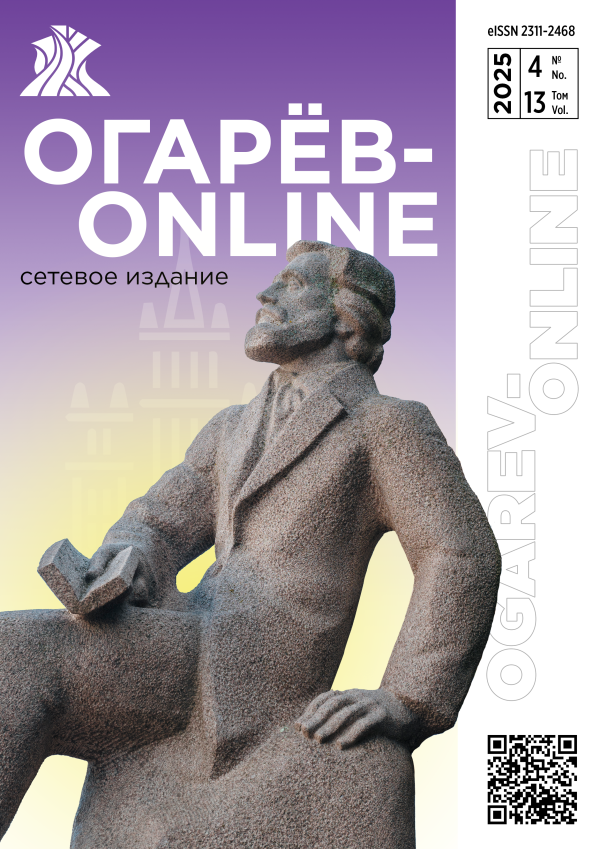Vol 10, No 7 (2022)
- Year: 2022
- Published: 18.06.2022
- Articles: 10
- URL: https://ogarev-online.ru/2311-2468/issue/view/17752
Full Issue
Removing interlanguage interference at different levels of language system
Abstract
The article discusses a number of interpretations of the term of interlanguage interference and its classifications. Considering the typology of interlanguage interference, methodological recommendations for its neutralization suggested by Russian methodologists and linguists were analyzed.
 2-7
2-7


Effectiveness of using computer games in teaching English vocabulary
Abstract
This article deals with the issue of effective usage of contemporary information technologies, namely computer games, in teaching English vocabulary. The author carries out a comparative analysis of computer games with lexico-communicative orientation and games aiming to expand vocabulary when learning English as a second language.
 8-15
8-15


Representation of author's personality in English political memoir
Abstract
The article considers stylistic devices representing author’s personality in the text of English political memoir. The author analyzes the memoir of the 44th US President, Barack Obama, "A Promised Land" to identify the recurring stylistic devices used to mark the author's emotional states as part of his personality.
 16-21
16-21


The use of TV series “Sherlock” at ESL classes for sociocultural competence building
Abstract
The paper presents the results of a practical study. It focuses on the building of high school students’ sociocultural competence through the use of fragments of authentic TV series “Sherlock” at English as a second language classes. The article contains the main conclusions of the study and a sample practical task.
 22-28
22-28


Functions of lexical borrowings in English media
Abstract
The article deals with the role of mass media in the dynamics of language processes and defines the functions of lexical borrowings in English media texts. The study is focused on such functions of borrowings as nominative, integrative, text compression function, expressive-stylistic, evaluative, emotive and the function of a marker of cultural identity and orientation to linguistic fashion.
 29-34
29-34


Stylistic features of English autobiographical text
Abstract
This article aims to describe the stylistic features of English texts of the autobiographical genre. The author reveals the most frequent stylistic devices of lexical and syntactic levels. A conclusion is made about the hybrid nature of the autobiographical text achieved by mixing features of different styles and genres.
 35-40
35-40


Functional and semantic features of barbarisms and exotic words in English literary text
Abstract
The article deals with Spanish barbarisms and exotic words in the novel of Ernest Hemingway “The sun also rises”. Considering extralinguistic features of the novel, the author carried out a quantitative analysis and determined the functions and semantics of Spanish barbarisms and exotic words used in the novel.
 41-46
41-46


Difficulties in translation of English euphemisms in media texts
Abstract
This article deals with the study on the phenomenon of euphemism that appears and spreads in the media for certain extralinguistic reasons of objective and subjective nature. These reasons should be takes into consideration when translating euphemisms in media into a foreign language. In this connection the authors examine some of the difficulties in translating euphemisms from English into Russian in the texts of BBC News.
 47-52
47-52


Cognitive analysis of English regulatory and technological documents of foreign universities
Abstract
The article is devoted to the application of the methodology of discourse analysis to identify the linguo-pragmatic features of statutory and technological discourse. The author considers a number of normative and technological documents of British universities in order to test the method in practice.
 53-58
53-58


 59-64
59-64

















